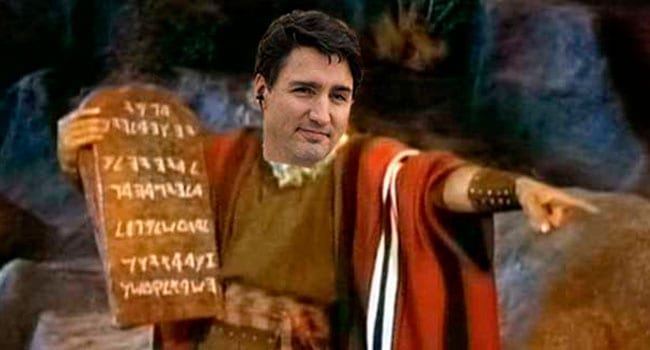 Engaging in international trade is perhaps the greatest of Canadian economic traits. We’ve been traders since the first Europeans arrived. The accounts of the competition between les voyageurs and les coureurs du bois, and between the Hudson Bay Co. and the North West Co., are part of national folklore.
Engaging in international trade is perhaps the greatest of Canadian economic traits. We’ve been traders since the first Europeans arrived. The accounts of the competition between les voyageurs and les coureurs du bois, and between the Hudson Bay Co. and the North West Co., are part of national folklore.
Canada has always been a nation of traders and likely always will be. Other nations can shut themselves off from the rest of the world, but Canada’s economic prosperity has always been tied to bringing our goods to international markets.
As a nation, we’ve been blessed in so many ways. Our neighbour, the United States, is the world’s leading economy. At $18 trillion in gross domestic product, the U.S, represents approximately one-quarter of the global economy. Canada is its most reliable and, importantly, most peaceful trading partner.
Canada has three oceans, plus the Great Lakes and the St. Lawrence Seaway, and a number of bustling deepwater ports that allow shipping connections for Canadian goods to global markets.
Canadian products and natural resources are in increasing demand globally.
Royalties and taxes generated by this economic activity are essential for our investment in domestic social programs like health care, education and income supplements. Everyone benefits from the revenue generated by international trade.
Former prime minister Stephen Harper may go down in history as one of Canada’s greatest traders. When he took office, Canada had five international free-trade deals in place, the most significant being the North American Free Trade Agreement (NAFTA) involving Canada, the U.S. and Mexico. When he left office, just shy of 10 years later, Canada had free-trade agreements with 43 countries. Harper firmly believed in the benefits of open market access.
But if Harper was our greatest trader, Prime Minister Justin Trudeau could go down in history as our worst.
With a zealot’s conviction of imposing his ‘progressive’ values on other nations, Trudeau has repeatedly placed Canadian economic interests at great risk as he wades in the deep waters of diplomacy. Trudeau has insisted that Canadian companies won’t be allowed open access to Chinese, Japanese and other important Asian and Trans-Pacific markets unless those nations acquiesce to his progressive demands.
While these nations are interested in our goods and services, not one of them is interested in buying Trudeau’s values.
China and other Asian countries have pasts tainted by colonial powers demanding the westernization of their peoples. Our prime minister, who apparently has never been a student of history, is shockingly deaf to why these sovereign nations would rebuff his demands. In December, China’s state-owned national newspaper criticized Canada and our efforts for greater trade. The fact that this criticism came while Trudeau was touring China can only be seen as a huge failure in Canadian diplomatic efforts.
Trudeau’s demands for progressive values, along with his inexplicable strategy of tying Canada’s trade hopes to Mexico’s continued inclusion in NAFTA, may well cause the termination of free trade with the United States. Although he was elected to lead Canada, Trudeau is obsessed with Mexican concerns despite the fact that this strategy holds no clear benefit for Canadians.
Despite signals that the United States may walk away from NAFTA, Trudeau also continues to fight for greater powers for American labour unions.
The prime minister would be wise to remember that many Canadians don’t share his zeal for his progressive values. Elected with just 39 per cent of the popular vote, Trudeau needs to be reminded that he serves all Canadians, not just the most radical elements of his political base.
Expansion of international trade and globalization are crucial if Canada’s economy is to continue to thrive.
Harper shrewdly opened up the world to Canadian trade and commerce. But these gains are at great risk of collapse under Trudeau.
Canada’s reputation is on the line. It’s time for Trudeau to put his ambitions aside and put forward the interests of all Canadians to expand our economy through foreign trade and investment.
Maddie Di Muccio is a former town councillor in Newmarket, Ont., and former columnist with the Toronto Sun.
Maddie is a Troy Media Thought Leader. Why aren’t you?
The views, opinions and positions expressed by columnists and contributors are the author’s alone. They do not inherently or expressly reflect the views, opinions and/or positions of our publication.


